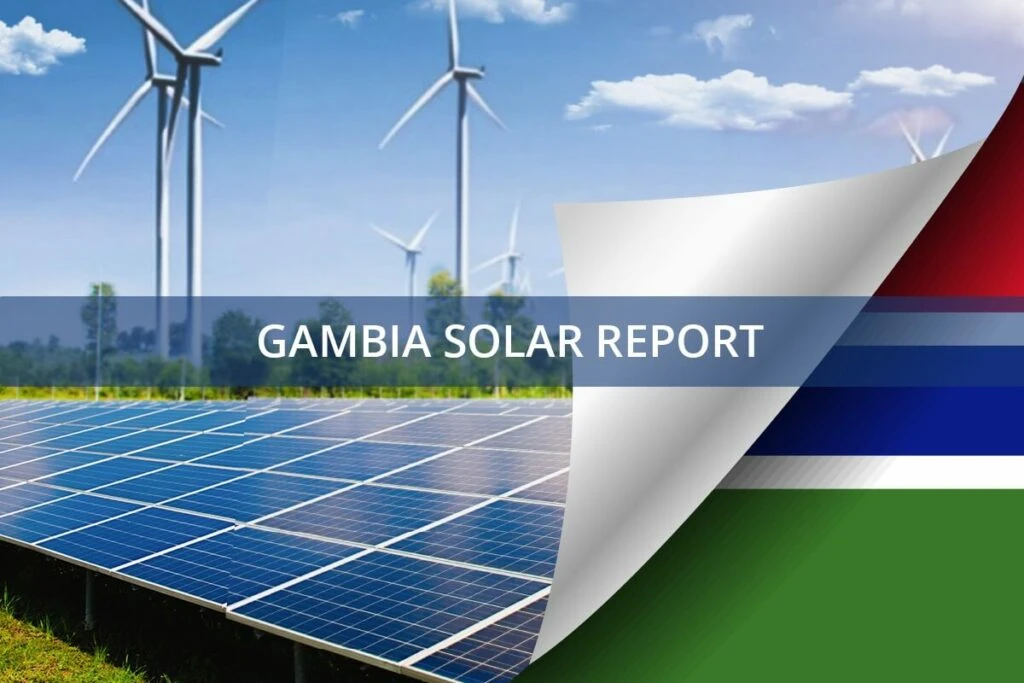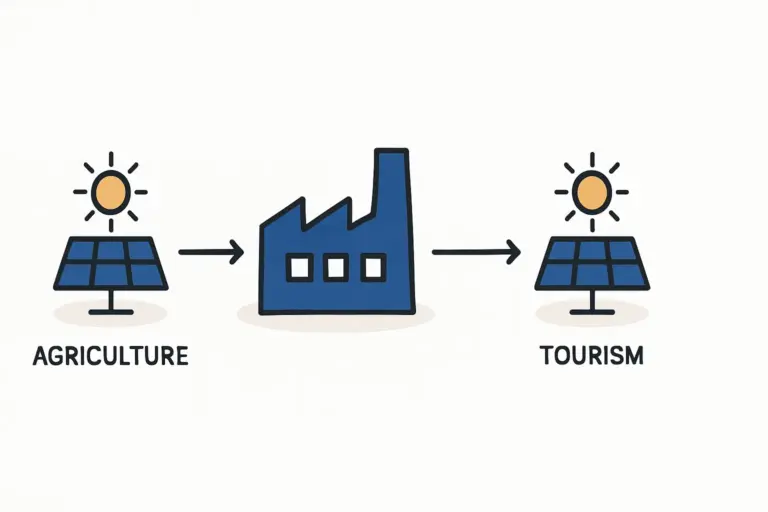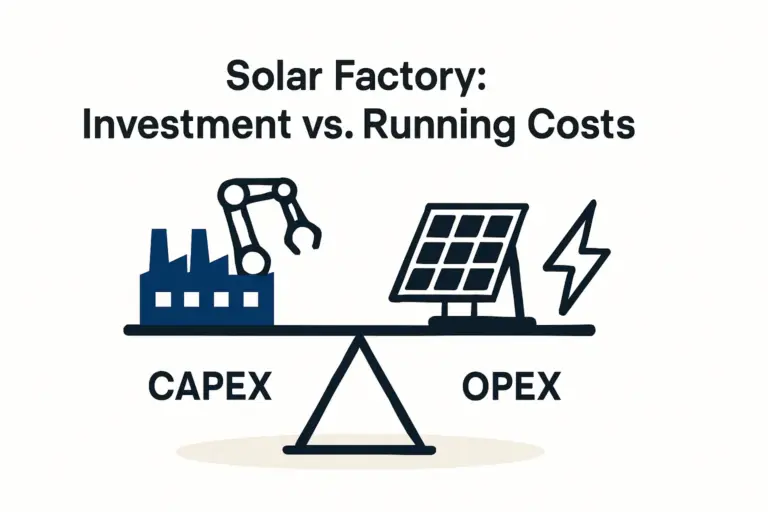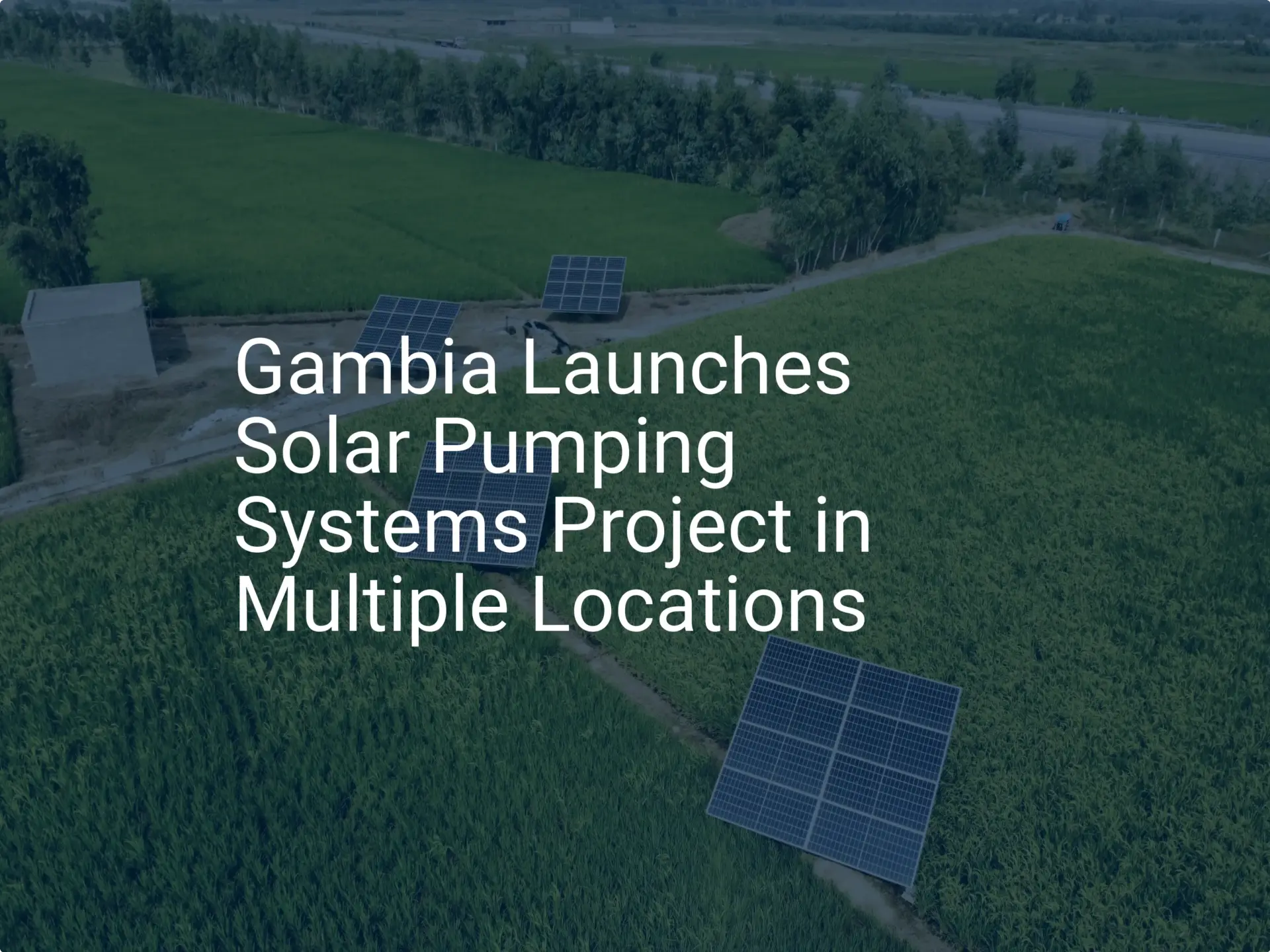Entering a new market requires a solid grasp of both commercial opportunities and the local regulatory landscape. For entrepreneurs considering a solar manufacturing facility in West Africa, The Gambia offers a structured incentive program designed to attract foreign investment. Navigating these programs, however, can be complex without clear guidance.
This guide provides a detailed overview of Gambia’s Special Investment Certificate (SIC), the primary government incentive for new ventures. It explains the eligibility criteria, specific benefits for solar manufacturers, and the step-by-step application process, helping you turn regulatory requirements into a strategic advantage.
What is the Special Investment Certificate (SIC)?
The Special Investment Certificate (SIC) is a legal document that provides qualifying businesses with a set of powerful fiscal incentives. It serves as the cornerstone of The Gambia’s strategy to encourage investment in priority economic sectors.
Administered by the Gambia Investment and Export Promotion Agency (GIEPA), the SIC is designed to reduce the initial financial burden on new enterprises and improve their profitability during the critical early years. For investors in the solar energy space, it represents a clear signal of government support and provides a significant competitive edge.
Eligibility Criteria for Solar Manufacturing Ventures
Qualifying for an SIC involves meeting two primary, straightforward conditions, making it easy for serious investors to determine their eligibility.
-
Minimum Investment Capital: The project must involve a minimum investment of two hundred and fifty thousand US dollars (US$250,000). This capital can cover the cost of machinery, building works, and other essential setup expenditures.
-
Priority Sector Alignment: The business must operate within one of the government’s designated priority sectors. Solar module manufacturing aligns perfectly with two of these key areas:
- Manufacturing: As a core industrial activity.
- Energy: By contributing to the country’s energy independence and renewable energy goals.
This dual alignment places solar manufacturing ventures in a strong position when applying for the certificate.
Core Benefits of the SIC for Your Factory
The incentives offered under the SIC are substantial and directly address the main cost centers for a new manufacturing plant. These benefits typically last from five to eight years, depending on the project’s geographical location within The Gambia.
Tax Incentives
Successful applicants receive significant tax holidays, including an exemption from corporate or turnover tax for the certificate’s duration. They also benefit from a withholding tax exemption on dividends, enhancing financial returns for shareholders during the incentive period.
Customs Duty Exemptions
For a manufacturer, the exemption from customs duties on critical imports is perhaps the most impactful benefit. This applies to:
- Capital Equipment: All machinery and equipment required for your turnkey solar production line can be imported without incurring duties, drastically lowering initial capital expenditure.
- Raw Materials: An exemption on customs duty for importing raw materials (such as solar cells, EVA, and backsheets) for a specified period further reduces operational costs and improves cash flow.
Potential VAT Exemptions
In addition to customs duties, GIEPA may also recommend an exemption from Value Added Tax (VAT) on the procurement of specified goods and services during the investment phase.
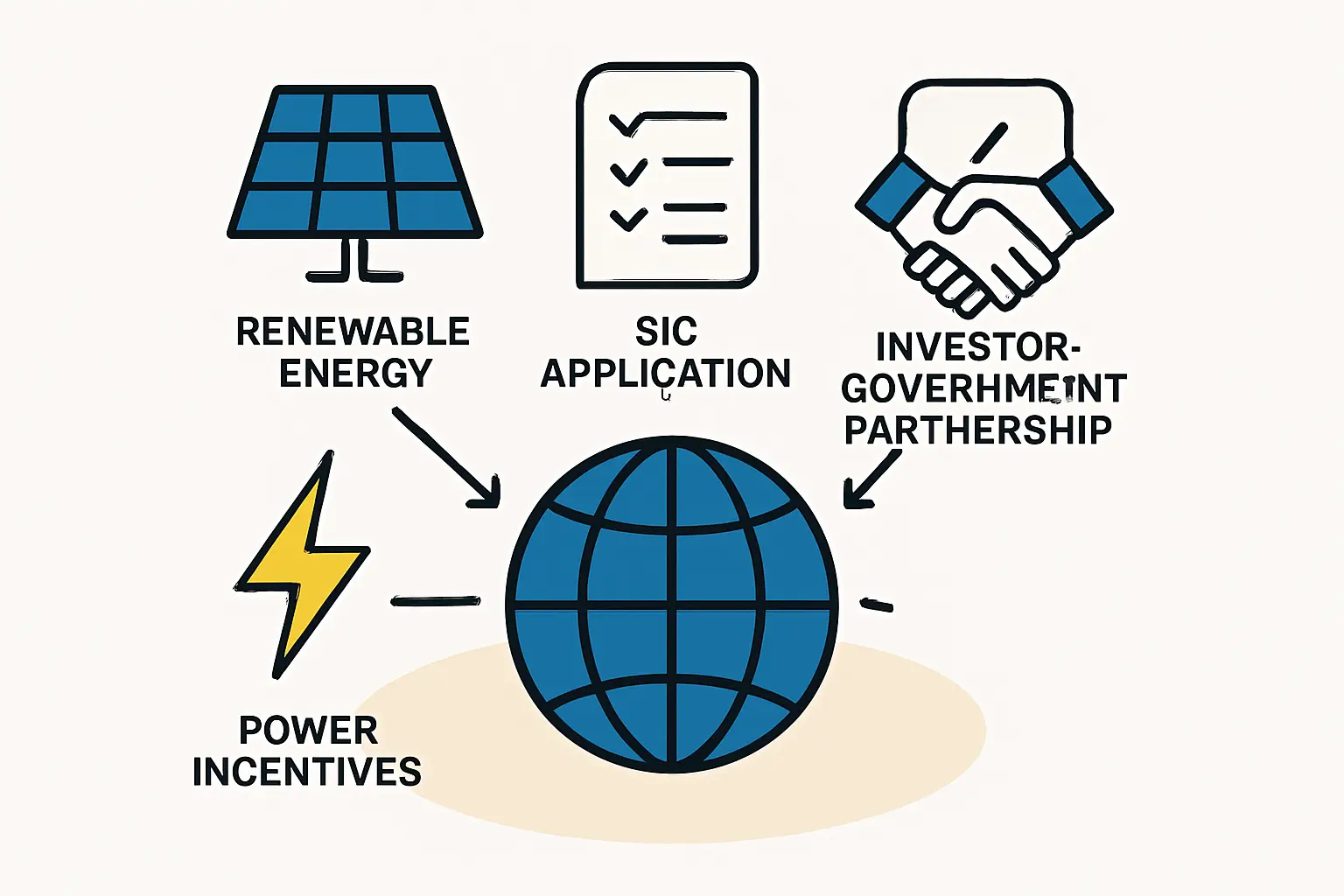
The Step-by-Step Application Process
While the benefits are significant, securing them requires a diligent and well-prepared application.
Step 1: Foundational Business Registration
Before applying to GIEPA, your enterprise must be formally established in The Gambia. This involves:
- Company Registration: Registering your business with the Registrar of Companies.
- Tax Identification: Obtaining a Tax Identification Number (TIN) from the Gambia Revenue Authority (GRA).
Step 2: Preparing the Application Package
This is the most critical stage, as a comprehensive and professional submission is essential for a positive outcome. The required documentation typically includes:
- Completed GIEPA Application Form: The official request for the SIC.
- A Detailed Business Plan: The plan must outline the project’s objectives, financial projections, market analysis, and operational strategy. A robust solar manufacturing business plan is the cornerstone of the application.
- Proof of Funding: Evidence demonstrating that the minimum investment capital of US$250,000 is secured.
- Company Registration Documents: All legal certificates proving the company’s official status.
- Environmental Clearance: An Environmental Impact Assessment (EIA) clearance certificate from the National Environment Agency (NEA).
Step 3: Submission and Review
Once compiled, the complete application package is submitted to GIEPA. The agency’s investment promotion team reviews the documentation for completeness and eligibility, assessing the project’s viability and its alignment with national development goals.
Step 4: Recommendation and Final Approval
If the review is positive, GIEPA’s board makes a formal recommendation to the Minister of Trade, Industry, Regional Integration and Employment. Final approval rests with the Minister, after which the Special Investment Certificate is issued.

Common Challenges and How to Prepare
The primary challenge for applicants is often not a lack of willingness from government agencies, but rather incomplete or poorly structured documentation. The most common hurdle is an underdeveloped business plan.
GIEPA needs to see a commercially viable, well-researched project that will create jobs and contribute to the economy. A plan that lacks detailed financial forecasts or a clear operational strategy is unlikely to pass the review stage. Taking the time to develop a professional and comprehensive plan is the single most important preparatory step an investor can take.
Why the SIC is a Strategic Advantage for Investors in Gambia
Securing an SIC is more than just a procedural step—it is a fundamental strategic advantage. The financial relief it provides allows a new factory to achieve profitability faster and build a more resilient financial foundation.
The cost reduction from duty exemptions allows capital to be reallocated to other critical areas, such as staff training or quality control. This government-backed incentive effectively de-risks the investment and accelerates the timeline for a return on investment, making The Gambia an attractive destination for solar manufacturing.
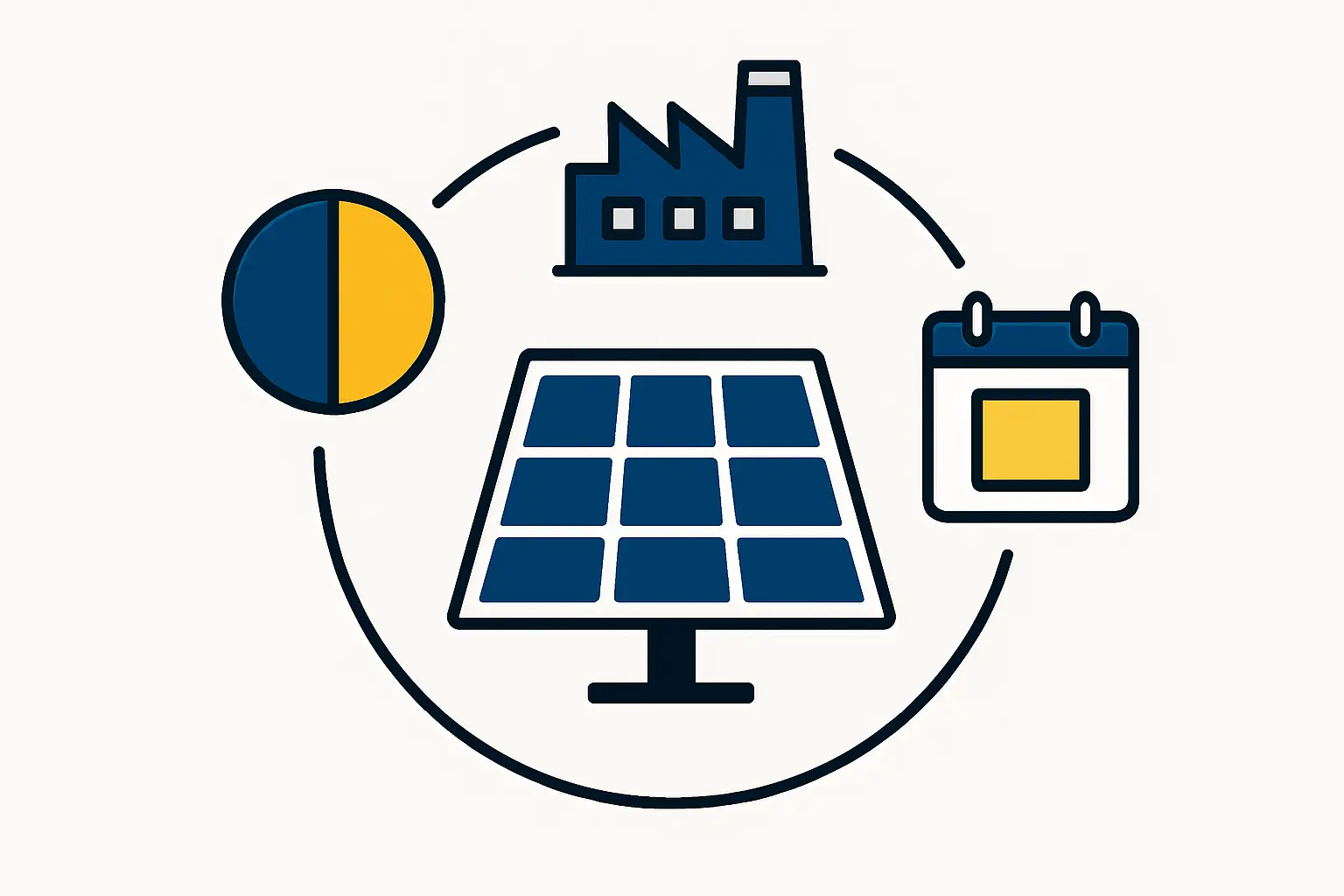
Frequently Asked Questions (FAQ)
How long does the SIC application process typically take?
While timelines can vary, a well-prepared application can generally be processed within a few months. Delays are most often caused by incomplete documentation.
Is the US$250,000 investment requirement only for machinery?
No, the minimum investment covers the total project setup cost, which can include machinery, civil works, initial raw material inventory, and other foundational expenses.
Can an existing company apply for an SIC for a new project?
Yes, an existing registered company can apply for an SIC if it is embarking on a new project or a significant expansion that meets the minimum investment and priority sector criteria.
What happens after the 5-8 year benefit period expires?
After the incentive period ends, the company is expected to operate under the standard tax and customs laws of The Gambia. The program is designed to provide stability during the crucial startup and growth phases.
Conclusion and Next Steps
The Gambia’s Special Investment Certificate offers a clear and valuable pathway for entrepreneurs looking to establish solar manufacturing operations. By significantly reducing initial and operational costs, the SIC program creates a favorable environment for long-term success.
Unlocking these benefits requires a thorough and professional approach to the application process, with a particular focus on a comprehensive business plan. Understanding this regulatory framework is an essential first step toward starting a solar panel factory. With careful preparation, investors can leverage the SIC to build a competitive and profitable enterprise in one of Africa’s emerging solar markets.

